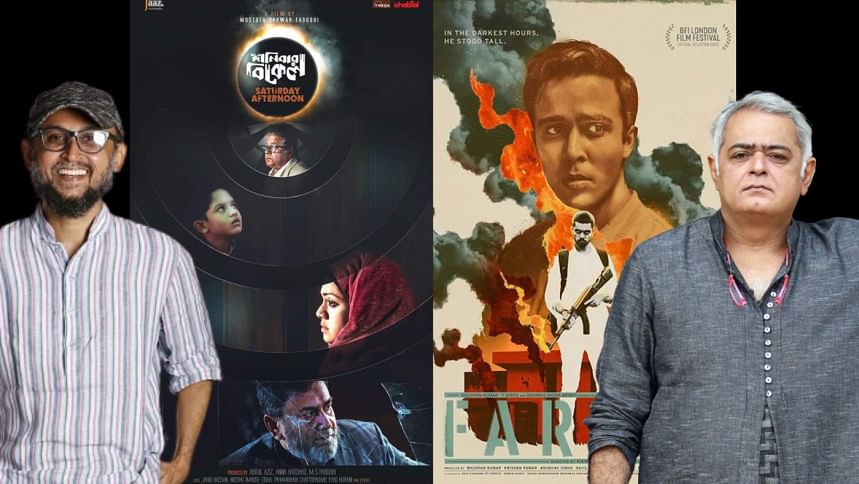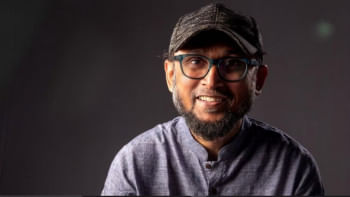The uncomfortable conversation around 'Faraaz'

Earlier, the official trailer for Hansal Mehta's thriller film, "Faraaz", was released. The film is said to be based on the tragic Holey Artisan café incident, which shook the country to the core on July 1, 2016.
On this day, five militants—armed with guns, machetes, and grenades—stormed the café, which is located in the diplomatic zone in Gulshan. The group held the diner's customers hostage, before brutally killing 20 of them. Among the dead, were three Bangladeshis, seven Japanese, nine Italians, and one Indian.
Eventually, the militants would be killed during the rescue operation conducted by army commandos. In addition to the café's diners, two police officials and a chef of the café were also killed during the 12-hour standoff—while another injured staffer died later.
While social media seems to be excited for the release of "Faraaz", many were not happy about the film when it was originally announced. In particular, the families of the victims had shared their distaste, some even going so far as to sue Hansal Mehta, for not taking permission from them before portraying the final moments of their dying kin.
Ruba Ahmed, the mother of Abinta Kabir, had said that such incidents "must not be represented, not now, not tomorrow, not ever."
It was the families of Abinta Kabir and Tarishi Jain, two of the victims of the tragedy, who initiated the lawsuit against Hansal Mehta—demanding an immediate halt of the film's production.
In a statement, both the families had written how the trauma behind that night was too raw and that movies like these, which monetize people's real emotions, should be banned forever.
The Abinta Kabir Foundation—a philanthropic organisation formed after the death of Abinta Kabir—had also issued a media statement, writing, "Not only will the film dishonour the sacrifices of all the victims, but it will indirectly tarnish the image of Bangladesh as an extremist nation to the world. That dark night is not at all a proper representation of our nation, nor our religion, and such a movie that can lead to people believing otherwise can be disastrous; it will do injustice to our country and our religious sentiments."
However, due to the incidents being 'public domain', Mehta was allowed to go forth and make his movie under his right to freedom of expression.
Now, the movie has already premiered at film festivals and is set to release in theatres on February 3.
While it is clear why an individual's freedom to express their thoughts is important, it is also key to remember that this movie is being based on a real-life incident, one with extensive human tragedies involved.
Irrespective of whether Bangladesh's image is tarnished in the process of this movie's release, the real question that needs to be asked is whether the dramatization of such events is a responsible choice to make?
While its hard to answer these questions without having watched the full movie, the trailer does give us some hints. In one scene, a terrorist member can be seen talking to a child. He makes the child hold the gun, almost as if he is trying to coax the young boy to believe his particular ideologies.
Other scenes, where people are being shot, seem to inflate the numbers. By the end of the two-minute trailer, I at least counted 11-12 people being shot. These kinds of fictional retellings take away from the actual tragedy.
Another concern, is the fact that the entire movie seems to be in Hindi. Real life incidents that took place in Bangladesh, being paraded around for a Hindi-speaking audience seems disingenuous to the actual victims. These were Bangladeshi people that lost their lives. If "Faraaz" is really about honouring those that lost their lives during that terrorist attack, then why can't they be speaking in Bengali? Even the Bangladeshi police officers are speaking Hindi.
Many people have argued that this is a movie made in India, that it's for Bollywood and what not. But haven't people grown accustomed to having movies set in different countries speaking in their language and having subtitles?
At the same time, another concern that has been raised on social media, is the fact that Mostofa Sarwar Farooki's "Saturday Afternoon"—which is also based on the same incident—is yet to receive clearance from Bangladesh's censor board.
Farooki's "Saturday Afternoon" has long been stuck in censor board approval limbo, with very little reasoning offered for why it has yet to be cleared. The film was completed long before "Faraaz", but due for the vague reasoning of 'it will tarnish the image of Bangladesh', it is yet to be cleared by the censor board.
In previous statements, Farooki has noted that the censor board was initially happy with the film and supported him with assurances that it would receive clearance quickly. However, according to the director, a group of people who were doing religious politics online demanded that the movie be banned. It is after this, that "Saturday Afternoon" lost all momentum in the censor clearance procedure.
In August, filmmakers, artistes and industry insides across Bangladesh came forward to support Farooki's cause. They demanded the release of the film and yet even after that Farooki has been told to wait till January 21, for a meeting with the Censor Board Appeal Committee. Even then, there is no guarantee that "Saturday Afternoon" will receive a clearance certificate on that day.
Why does India get to make and release a film on incidents that took place in our country, while our own filmmaker does not get to see his movie released? Does the freedom of expression only come into play when you cross out of Bangladesh's borders? Why is the censor board so concerned about a movie tarnishing the country's image, when an Indian director has clearly made a more dramatized version of the events that took place on July 1, 2016?
As Mostofa Sarwar Farooki said, "The question isn't if 'Saturday Afternoon' will tarnish the country's image, rather if preventing its release will reduce Bangladesh's image infront of the rest of the world."

 For all latest news, follow The Daily Star's Google News channel.
For all latest news, follow The Daily Star's Google News channel. 










Comments